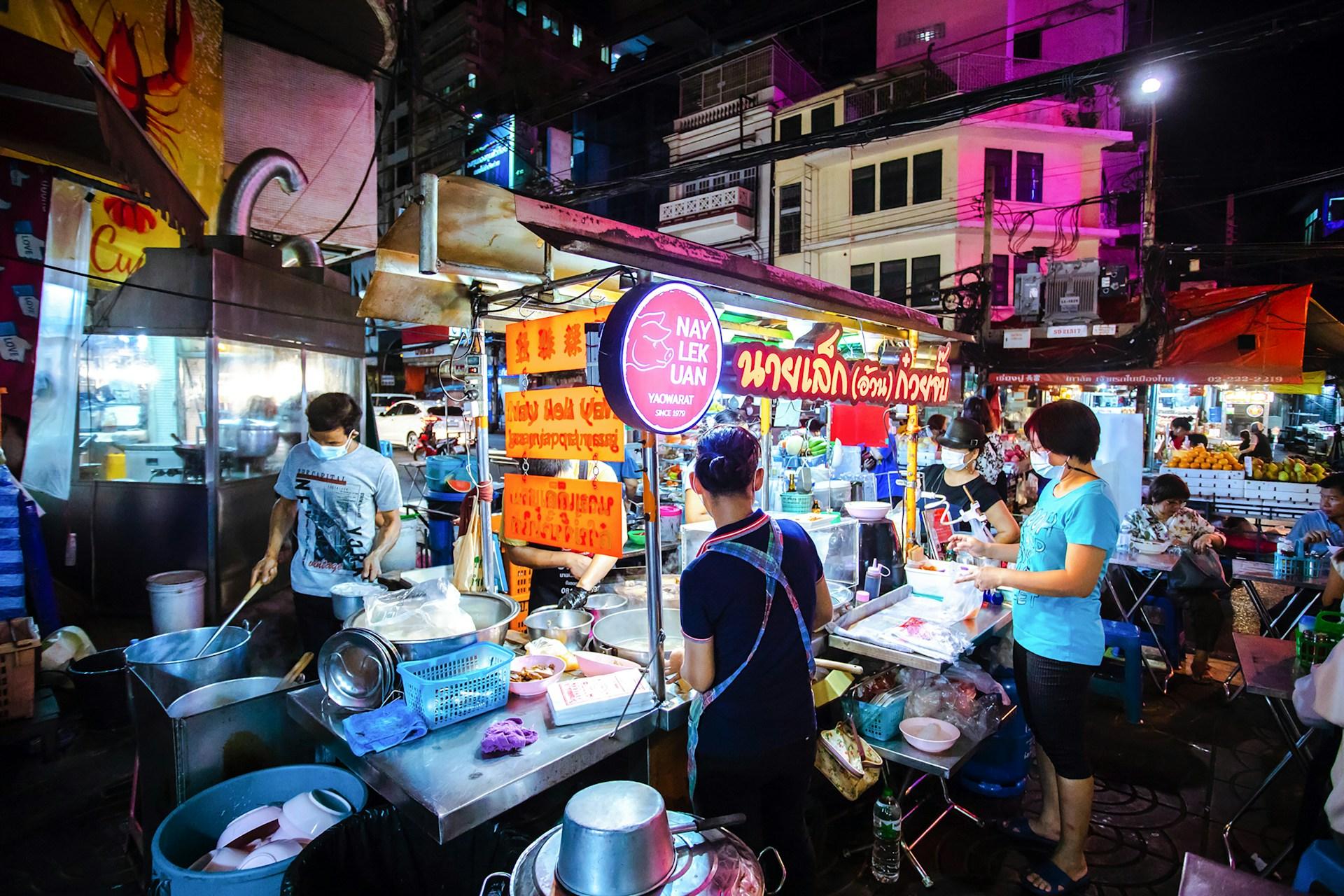When you think of travelling to Thailand, you probably think of sun-soaked beaches, ornate temples, and bustling street markets filled with aromatic delights. Not to mention the undeniable warmth of its people.
These are just but some of the reasons why the country has long stood as a haven for travellers seeking adventure, relaxation, and a plethora of cultural experiences.
But even with all its beauty, here comes the most frequently asked question; Is Thailand safe to visit in 2024?

Generally, Thailand is considered one of the safest destinations to visit. However, standard precautions are necessary and tourists are encouraged to be cautious of some specific risks and scams.
For example, while major cities and tourist spots like Bangkok and Chiang Mai are generally safe, tourists can be targets of scams.
Common scams include rental scams where you might be falsely charged for "damages" on rented vehicles, inflated charges at bars, and deceptive tuk-tuk drivers who might take you on unnecessary detours to shops where they get commissions.
When it comes to the health front, there is nothing much to worry about. Like any other country, Thailand poses typical travel risks such as road safety, especially for those riding motorbikes.
Traffic can be chaotic, and adherence to road safety rules is crucial to avoid accidents. Don’t forget petty crimes like theft, which are common. Make sure to keep your valuables secure. Be cautious about where and how you store your belongings.

In a nutshell, Thai culture embodies a deep respect for hierarchy and the royal family, a love for communal eating (the spicier, the better!), and a laid-back approach to life summarized by the phrase "mai pen rai" (no worries).
As a traveller, it is important that you get accustomed to the norms. Here are some cultural guidelines to embrace, to ensure a respectful and enjoyable visit to Thailand:
Dress modestly ‐ Especially when visiting temples and other religious sites. Cover your shoulders and knees, and remove your shoes before entering someone's home or a temple's main hall, unless requested otherwise.
Respect the Monarchy ‐ Speaking negatively about the royal family is not only frowned upon but also illegal under Thai law. Always treat images of the king, including money, with respect.
Mind your manners ‐ The traditional Thai greeting, the "wai", involves a slight bow with the palms pressed together in a prayer-like fashion. It is polite to return the gesture when it is offered to you.
Be patient and polite ‐ Thais value a calm demeanour and politeness. Raising your voice or showing anger is considered rude and ineffective.
Understand local customs ‐ For example, pointing with your feet or touching someone's head can be considered disrespectful in Thai culture.
Contribute to conservation ‐ Be mindful of your environmental impact. Avoid animal tourism that harms the creatures, like riding elephants or visiting tiger temples where animals may be mistreated.
Some of these practices may seem petty, but remember, it is the small gestures that matter. This will not only ensure your visit is fun and memorable but also foster positive interactions with local residents
The genuine friendliness and welcoming spirit of Thai people is unmatched. The hospitality is legendary, with locals often going out of their way to ensure visitors feel not just welcome but genuinely at home.
This cultural ethos significantly enhances the traveller's experience, providing a comforting assurance of safety and well-being in a foreign land.

The simple answer is yes. As long as you are well-prepared and informed, you shouldn't fret. Just keep in mind to maintain awareness of your surroundings, be cautious of scams, and respect local laws and customs.
If you want the latest information on the best Hotel Executive Club Lounges, Hotel Kids Clubs and other travel information, be sure to sign up for our free newsletter full of tips and great travel ideas.